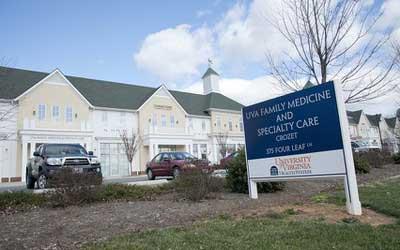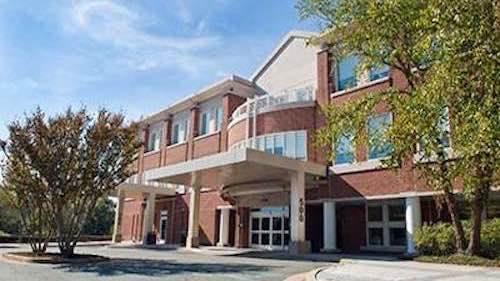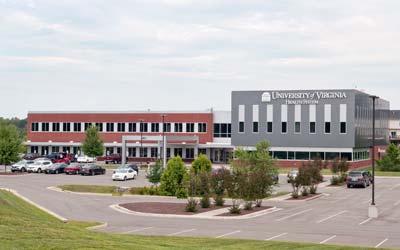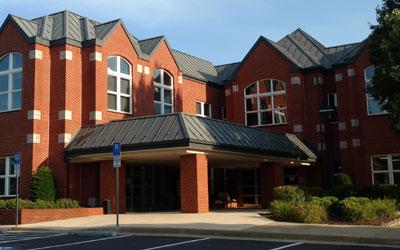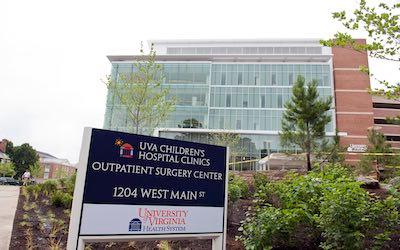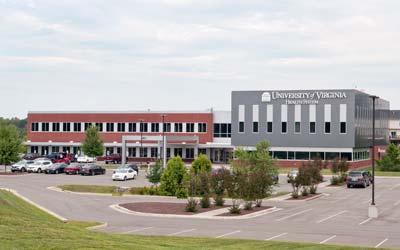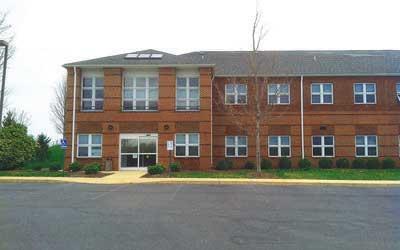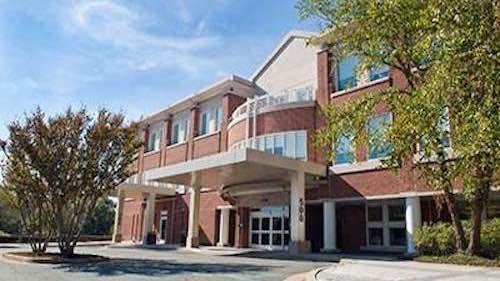Prostatectomy Procedure To Remove The Prostate Gland
Make an Appointment
At UVA Heath, you'll find experts highly skilled in performing a prostatectomy. You may need this surgery if you have prostate cancer or a prostate that is enlarged but not cancer (known as benign prostatic hyperplasia or BPH).
What Is a Prostatectomy?
This surgery removes the prostate gland and seminal vesicles. Both are part of the male reproductive system. They make and store the milky fluid that forms part of semen.
Types of Prostatectomy at UVA Health
At UVA Health, your urologic surgeon will design a treatment plan to help you recover easier and preserve your urinary and sexual function.
The procedure can be done as:
- Robot-assisted surgery — Done through small incisions using a camera and advanced tiny instruments
- Open surgery — Incision made in the skin to allow the doctor to see the prostate
Robot-Assisted Laparoscopic Prostatectomy (RALP)
With this procedure, surgeons make 5 small incisions in the abdomen. Robotic arms and a small camera are passed through these incisions. The robotic tools, controlled by a doctor at a console, allow wider and more flexible range of motion. The tools are used to remove the prostate, seminal vesicles, and sometimes lymph nodes. This type of procedure offers:
- Less bleeding
- Faster recovery time
- Ability to preserve urinary and sexual function
We offer the da Vinci 5 (DV5) robotic surgical system for prostatectomy. DV5 is a major advance in the 30-year evolution of robotic-assisted surgery.
Radical Retropubic Prostatectomy
The surgeons make an incision in the lower abdomen between the belly button and pubic bone. The prostate gland and pelvic lymph nodes are visible through this incision. The prostate will be detached from the bladder and urethra. The urethra is then re-attached to the bladder. Lymph node tissue may also be removed for testing.
Simple Prostatectomy
In most cases, this type is done robotically. Or surgeons make an incision in the lower abdomen to remove the inner part of your prostate gland. This type of prostatectomy is considered when you have a non-cancerous enlargement of the prostate. This is not a prostate cancer surgery.
Recently Diagnosed With Prostate Cancer?
What to Expect
Before Your Procedure
Before surgery, your doctor may do the following:
- Physical exam
- Blood and urine tests
- Chest X-ray
- Electrocardiogram (ECG, EKG) — a test that records the heart's activity by measuring electrical currents through the heart muscle
- PET scan, bone scan, CT scan, or MRI of the prostate, if your doctor is concerned about a spreading cancer
Your care team will give you a binder and teach you about ERAS. This stands for early recovery after surgery. This tells you everything to expect and everything you'll need to do before surgery, as well as after surgery, to make recovery easier.
Kegel exercises and pelvic floor strengthening: Your surgeons will discuss special exercises that you need to start doing before surgery. These exercises help your urinary control return more quickly after surgery.
Medications to help improve erectile function: Your surgeon will discuss starting a medication before surgery and continuing to take after surgery. This will help speed up recovery of your sexual function. This is all part of ERAS.
Consultations with other urology specialists: At UVA Health, we have other urology doctors dedicated to recovery of urinary and sexual function after surgery. We offer consultations with these experts before surgery so you can be as prepared as possible and recover quickly.
Day of Your Procedure
This surgery is performed under general anesthesia. With general anesthesia, you will be asleep.
A catheter tube will be inserted during the surgery to drain your bladder.
The catheter will be left in place for 7-10 days. This will let you urinate more easily during the healing period. After a radical prostatectomy, a drain may also be placed to help fluid drain from the surgery site.
How Long Will It Take?
A radical prostatectomy takes 2-5 hours.
Will It Hurt?
Anesthesia prevents pain during the procedure. You can expect some pain and discomfort for:
- 7-10 days after open surgery
- 3-4 days after laparoscopic surgery
Average Hospital Stay
The usual length of stay is 1 day. Your doctor may choose to keep you longer if complications arise.
Care After Your Surgery
When you return home, do the following to help ensure a smooth recovery:
- Take medicines as directed.
- Stool softeners will be given to prevent constipation.
- Most patients take only non-prescription pain relievers (such as acetaminophen) after surgery.
- Avoid taking aspirin or aspirin-containing products.
- When resting in bed, keep legs elevated and moving. This will help prevent blood clots from forming in your legs.
- To promote healing, resume normal activities as soon as possible.
- Drink plenty of liquids. This helps clear your bladder of urine and blood.
- Ask your doctor about when it's safe to shower, bathe, or soak in water.
- Wash the incision gently with mild soap and water.
- Do not drive unless your doctor has given you permission to do so. You may need to wait up to 1 month.
- Avoid vigorous exercise for 6 weeks after surgery.
- Resume sexual activity no sooner than 4 weeks to allow for healing.
- Avoid caffeine, alcohol, spicy foods, or any food or drink that might aggravate your stomach, intestines, bladder, or urinary tract.
- Be sure to follow your doctor’s instructions.
Complete healing from surgery usually occurs within six weeks.
When to Call Your Doctor
After you leave the hospital, call your doctor if any of the following occur:
- Signs of infection, including fever and chills
- Redness, swelling, increasing pain, excessive bleeding, or any discharge from the incision site
- Nausea and/or vomiting that you can't control with the medications you were given after surgery, or which persists for more than 2 days after discharge from the hospital
- Pain that you can't control with the medicines you've been given
- Poor drainage from the catheter
- Abdominal swelling or pain
- Cough, shortness of breath, or chest pain,
- Headaches, muscle aches, dizziness, or general ill feeling
- Drainage from your incision
In case of an emergency, call for medical help right away.
